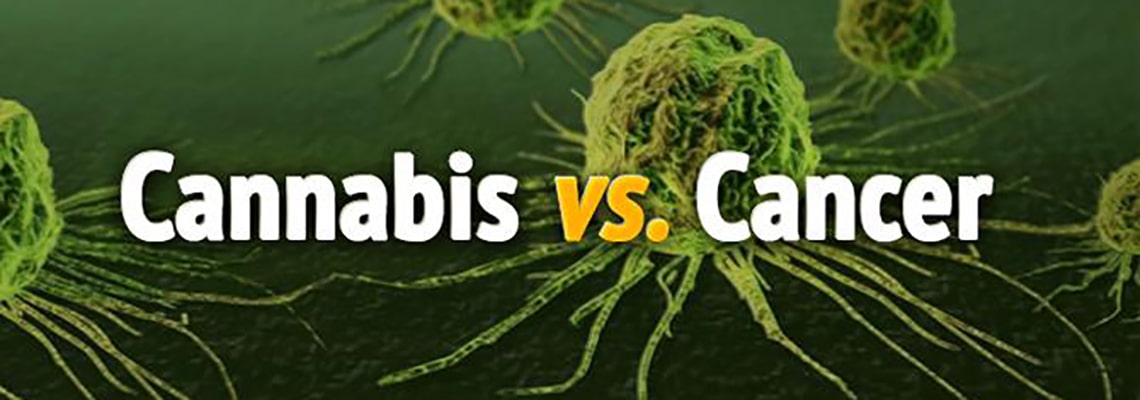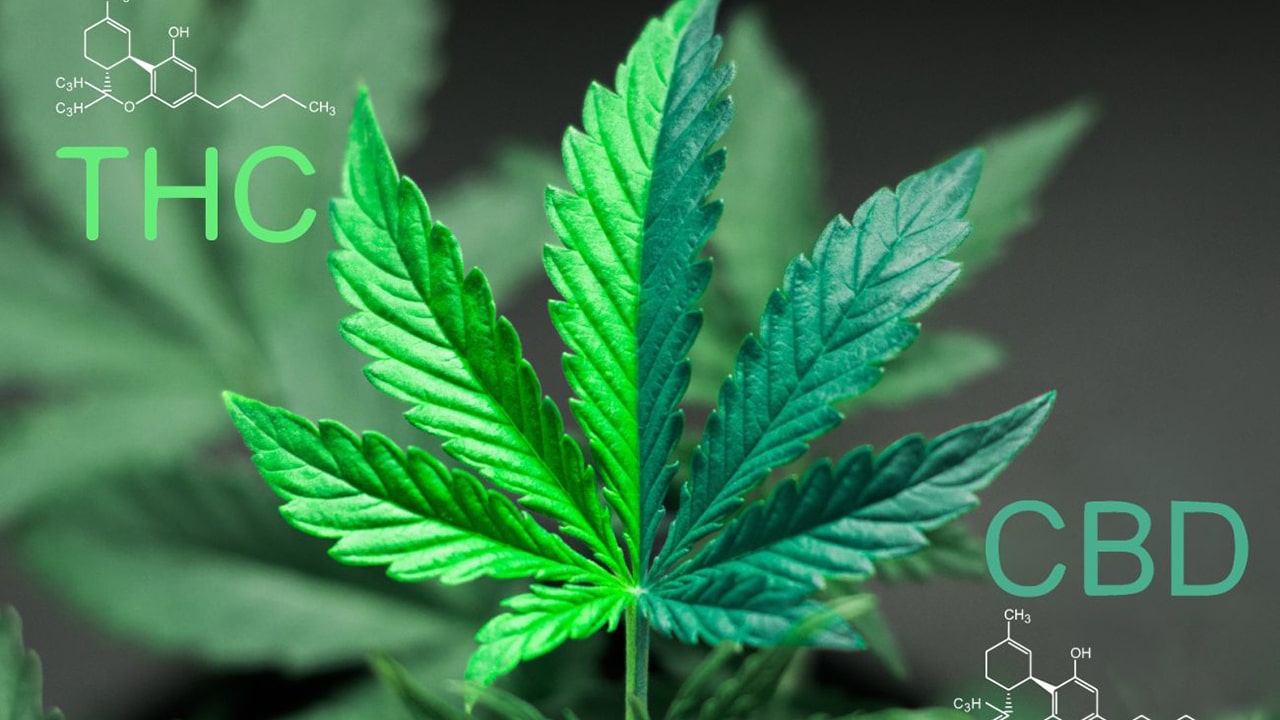There seems to be nothing in your cart.
Didn't find what you were looking for? Contact our consultant.
To save your shopping cart until your next visit, create an account or register .
Browse our Hits sales
There seems to be nothing in your cart.
Didn't find what you were looking for? Contact our consultant.
To save your shopping cart until your next visit, create an account or register .
Browse our Hits sales

Content
Cannabinoids, such as tetrahydrocannabinol and cannabidiol, are the main components of cannabis and have been the focus of scientific attention for many years due to their potential to fight cancer. These substances interact with the body's endocannabinoid system, which plays a key role in regulating processes such as immunity, inflammation and cell growth.
THC, known for its psychoactive effects, is predominantly found in indica and sativa varieties with high levels of cannabinoids. Studies show that THC can affect cancer cells through several mechanisms:
CBD is a non-psychoactive component of cannabis that has recently attracted considerable attention for its medicinal properties. CBD can be found in varying concentrations in sativa and indica varieties, and its effects on the body are also unique. The main mechanisms through which CBD acts on cancer cells include:
The combination of THC and CBD, characteristic of many varieties, can create a synergistic effect, enhancing the overall anti-cancer activity of the cannabinoids. CBD mitigates the psychoactive effects of THC, allowing patients to receive the therapeutic benefits of both cannabinoids with a lower risk of side effects. This combination is particularly effective in controlling pain, inflammation, and other cancer-related symptoms while affecting the underlying mechanisms of tumor growth.

Metastasis is the process by which cancer cells spread from the primary tumor to other organs and tissues, forming new foci of disease. This process complicates treatment and significantly reduces the chances of successful therapy. In recent years, evidence has emerged that cannabinoids such as THC and CBD can influence the mechanisms of metastasis, slowing down or even preventing it.
CBD (cannabidiol) has shown itself to be a powerful tool in fighting the spread of cancer cells. Here are the main mechanisms by which CBD can slow or block the process of metastasis.
CBD affects molecules involved in the migration of cancer cells, limiting their ability to move through the body. This effect is particularly noticeable in aggressive cancers, such as breast or lung cancer, where metastasis occurs rapidly. CBD reduces the activity of cells responsible for tumor spread, which helps limit cancer in its early stages.
Chronic inflammation promotes a favorable environment for metastasis. CBD has strong anti-inflammatory properties that reduce inflammation in the body. As a result, it reduces the likelihood that cancer cells can invade new tissues. These properties of CBD are particularly beneficial for tumors in the lungs and other organs that are prone to inflammation.
Chemotaxis is the process by which cells move toward specific chemical signals. Cancer cells use chemotaxis to find ways to spread and invade other tissues. CBD can block this process, making it difficult for cancer cells to move to new areas of the body. This mechanism plays an important role in slowing metastasis.
THC (tetrahydrocannabinol) also exhibits the ability to slow the metastasis process due to its unique properties.
THC binds to CB1 and CB2 receptors, which are located on the surface of cancer cells. Interaction with these receptors can lead to a decrease in the activity of cancer cells, their ability to infiltrate healthy tissues and form new tumors. This effect has been seen in studies on various types of cancer, including brain and breast cancer.
Angiogenesis is the process of forming new blood vessels, which is important for feeding the tumor. THC has the ability to limit angiogenesis by preventing the nutrients needed for tumor growth. Without access to blood and oxygen, it becomes more difficult for tumors to grow and metastasize.
Autophagy is the process by which cells “eat” themselves to get rid of damaged or unwanted parts. THC can induce autophagy in cancer cells, which weakens them and reduces their ability to spread. This effect helps suppress tumor growth and aggressive development.

The use of cannabinoids in oncology is becoming increasingly popular due to numerous studies confirming their potential to support patients suffering from cancer. Tetrahydrocannabinol and the non-psychoactive component CBD are gaining attention as powerful natural remedies that can improve patients' quality of life and alleviate many of the symptoms that accompany traditional treatments such as chemotherapy and radiation therapy.
Pain is one of the most common and intolerable symptoms for cancer patients. Cannabinoids such as THC, which are predominantly found in indica and sativa varieties, have a strong analgesic effect. THC binds to CB1 receptors in the brain, which has the effect of blocking pain signals from damaged tissues. This makes it particularly effective for chronic pain associated with cancer and its treatment.
In addition, cannabidiol, known for its anti-inflammatory and antioxidant activity, helps reduce side effects such as nausea and vomiting that result from chemotherapy. The combination of THC and CBD allows for a lower dosage of strong pain medications such as opioids, which reduces the risk of addiction and side effects.
Cancer treatment and illnesses are often accompanied by anxiety, depression and stress. THC, due to its relaxing properties, can alleviate psycho-emotional state, which is especially important for patients with high levels of anxiety and chronic stress. However, varieties with high levels of CBD, such as some sativas, help to improve mood without causing significant psychoactive effects. CBD also helps improve sleep quality, which is critical for recovery during intensive therapy.
In addition, CBD can interact with serotonin receptors, which play a key role in regulating mood and emotional state, making it a valuable component in cancer therapy aimed at improving a patient's mental well-being.
The use of THC and CBD in oncology is still under active investigation, and scientists continue to search for optimal ways to utilize them. Prospects lie in the development of THC- and CBD-based formulations that could combine the therapeutic effects of cannabinoids with conventional therapies. There are already pharmaceuticals, such as nabiximols, that combine THC and CBD to relieve pain in patients with cancer and other chronic diseases.
The use of CBD as an adjuvant to enhance the effectiveness of chemotherapy and radiation therapy is also being explored, which may increase the chances of successful treatment. In the long term, scientists aim to create cannabinoid drugs that could be used in the early stages of cancer and have a complex effect on the body, preventing the growth and spread of tumors.

Caution! Errors Seeds does not encourage you to grow cannabis and does not contribute to this in any way. Growing is prohibited by Ukrainian law. The article is of purely scientific and informational interest.